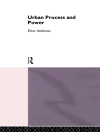In this groundbreaking new study, Nick Gill provides a conceptually innovative account of the ways in which indifference to the desperation and hardship faced by thousands of migrants fleeing persecution and exploitation comes about.
- Features original, unpublished empirical material from four Economic and Social Research Council (ESRC) funded projects
- Challenges the consensus that border controls are necessary or desirable in contemporary society
- Demonstrates how immigration decision makers are immersed in a suffocating web of institutionalized processes that greatly hinder their objectivity and limit their access to alternative perspectives
- Theoretically informed throughout, drawing on the work of a range of social theorists, including Max Weber, Zygmunt Bauman, Emmanuel Levinas, and Georg Simmel
Зміст
Series Editors’ Preface viii
List of Figures ix
Acronyms xi
Acknowledgements xii
1 Introduction 1
2 Moral Distance and Bureaucracy 21
3 Distant Bureaucrats 48
4 Distance at Close Quarters 76
5 Indifference Towards Suffering Others During Sustained Contact 107
6 Indifference and Emotions 135
7 Examining Compassion 156
8 Conclusion 179
Methodological Appendix 191
References 196
Index 216
Про автора
Nick Gill is Associate Professor of Human Geography at the University of Exeter. Co-editor of Carceral Spaces: Mobility and Agency in Imprisonment and Migration Detention (with D. Moran and D. Conlon, 2013) and Mobilities and Forced Migration (with J. Caletrio and V. Mason, 2013), Dr. Gill has published widely on forced migration, devolution, governance and activism. His current research, funded by the Economic and Social Research Council, focuses on activism around irregular migration and the legal geographies of border control.












